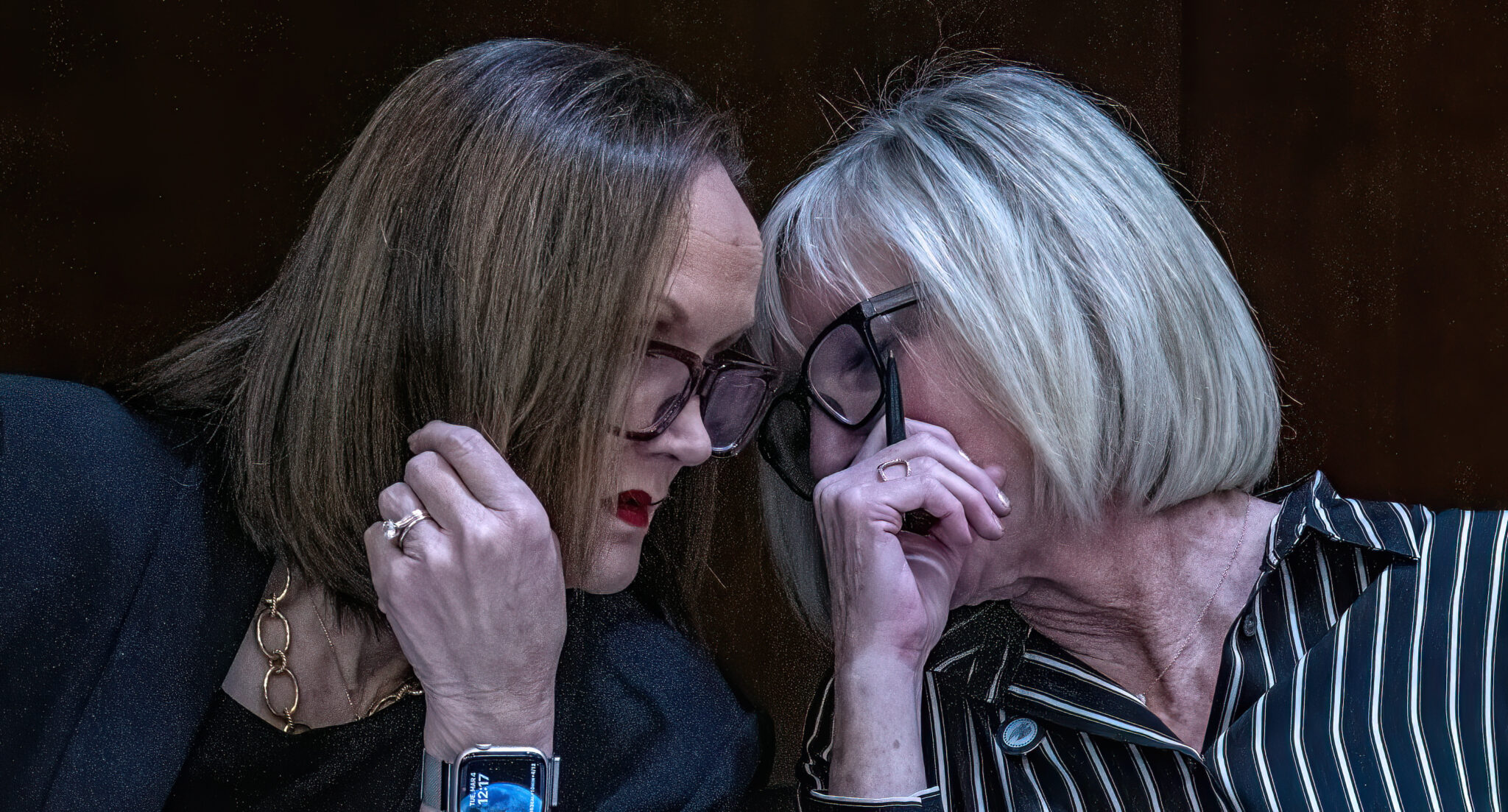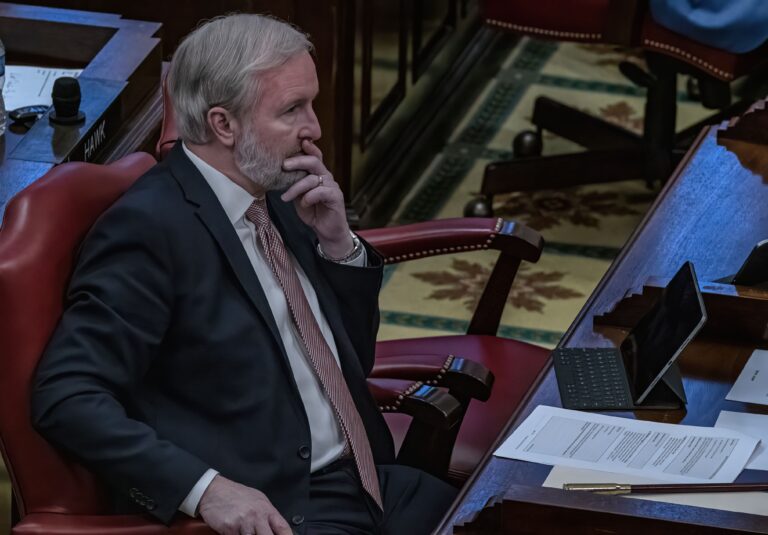In a legislative session dominated by the GOP supermajority’s conservative agenda, Tennessee lawmakers this spring took the unusual, bipartisan step of protecting certain reproductive rights.
Beginning July 1, Tennessee will become the first — and only — state in the South to have codified the right to access fertility treatments and birth control into state law.
Introduced by two Republican women and signed into law by Gov. Bill Lee, the legislation protects Tennesseans’ access to in vitro fertilization (IVF) and a range of birth control methods — reproductive health options that have not, in modern times, been restricted in the state but now have safeguards into the future.
Backers of the bill, among them progressive groups and conservative Republicans who have expanded their families through the use of IVF, called the legislation a needed win for preserving access to care.
“The law provides critical stability and peace of mind in an otherwise volatile political environment for women and families,” said Natalie Schilling of AWAKE Tennessee, which advocates for the rights of children and women.
Despite bipartisan support, however, the legislation was nearly derailed during its last debate on the House floor, a potential signal for future legislative fights that still loom over efforts to restrict access to IVF some Republicans have already indicated they intend to bring next year.
After the bill passed narrowly in the House, 11 Republicans called the legislation a “Trojan horse that could potentially undermine Tennessee’s strong and righteous stance on the protection of innocent human life” in a letter that unsuccessfully sought Lee’s veto of the bill.

The 11th hour pushback caught Rep. Iris Rudder by surprise. Rudder, a Republican from Winchester, cosponsored the legislation with Republican Sen. Becky Massey of Knoxville.
“I thought it was such a simple bill that said we just want to codify access to contraceptives and IVF,” she said in an interview with the Lookout. “I had no idea it would mushroom the way it did. It opened my eyes. It really did,” she said.
The legislation had sailed through legislative committees and earned a unanimous vote from the state Senate. Yet by the time it reached a vote on the House floor in early April, many of its Republican supporters sat silent during debate.
“I was looking out at the House floor and I was thinking, I am standing here as a woman and this is such an important issue for women,” Rudder said. “Most of those men are married. They have wives. They have daughters. They should be able to understand how important all these conversations are to women.”
The Fertility Treatment and Contraceptive Protection Act runs just five sentences long:
“The law of this state clearly and unambiguously acknowledges the right of a healthcare provider to perform, and the right of a person to receive or use, fertility treatment and contraceptives in this state,” it says in part.
The legislation was introduced in the aftermath of a first-of-its kind Alabama Supreme Court decision that jeopardized access to in vitro fertilization (IVF) in that state – and broader concerns that efforts to restrict abortion access could extend to birth control.
Rudder said she brought the legislation after women and families across the state implored her to protect their access to IVF and birth control.
The measure is similar to unsuccessful legislation brought last year by Democrats Rep. Harold Love, Jr. of Nashville and Sen. Raumesh Akbari of Memphis, both Democrats. That bill would have made explicit that Tennessee’s near total abortion ban does not endanger fertility treatments or access to contraceptive care.
I was looking out at the House floor and I was thinking, I am standing here as a woman and this is such an important issue for women. Most of those men are married. They have wives. They have daughters. They should be able to understand how important all these conversations are to women.
– Rep. Iris Rudder, R-Winchester
Unlike the Democrats’ bill, the Fertility Treatment and Contraceptive Protection Act makes no mention of the word “abortion.”
Rudder supports Tennessee’s near-total abortion ban and considers her legislation a wholly separate issue.
During House debate over the bill, however, some Republicans argued the issues are intertwined.
Rep. Gino Bulso, a Brentwood Republican, unsuccessfully sought to amend the bill to regulate the disposal of unused embryos in IVF treatment to “reaffirm that an embryo is a child.” The legislation, he argued, would create a “right to create and destroy human embryos without qualification, limitation or restriction,” contrary to the state’s recent anti-abortion history.
Republican Rep. Jody Barrett of Dickson said he opposed the bill because it would make it difficult for lawmakers to introduce subsequent legislation protecting embryos.
Rep Chris Todd, a Republican representing Madison county, called the bill “absolutely unnecessary.” He argued the bill would allow for “genetic testing to weed out embryos with undesirable genetic traits.”
And Rep. Timothy Hill, a Blountville Republican, noted that the American Civil Liberties Union, Planned Parenthood and other groups that support abortion rights supported the legislation, giving him pause.
“The bottom line is today you cast your vote not with a friend, not with a colleague, but with an organization that stands against life,” he warned colleagues on the House floor ahead of a vote on the legislation.

“Let’s get something the ACLU has a problem with and let’s come back here next year and get it right,” he said.
Rudder, who stood for nearly 45 minutes in the well of the House defending the bill at times, emotionally, pushed back. She noted that President Donald Trump has signaled his support to protect IVF access.
“Yes, I am your friend,” she told Republican colleagues. “But I don’t stand here as your friend. I stand here as a woman who believes this is important to families in Tennessee.
“I stand with women in this state and families in this state that want the ability to have these precious babies they may not have the opportunity to have otherwise.”
Later, she said in an interview with the Lookout, she had been “naive” in thinking the legislation would easily pass muster with all of her Republican colleagues. She said she was grateful that Rep. Esther Helton-Haynes, an East Ridge Republican, stood beside her in the well. “She was the only woman legislator that did,” she said.
“When I walked in there (the House floor), I had 61 votes,” she said. “When I walked out, I had 54.
“The conversation just went in such a different direction,” Rudder said. “When I went into the debate, I just wanted them to know that for women in this state, it’s so important. I was very emotional saying, ‘here I am asking you guys to get on board and understand what this bill actually does.’ I think they missed the point.”
Tennessee Lookout is part of States Newsroom, a nonprofit news network supported by grants and a coalition of donors as a 501c(3) public charity. Tennessee Lookout maintains editorial independence. Contact Editor Holly McCall for questions: info@tennesseelookout.com.
